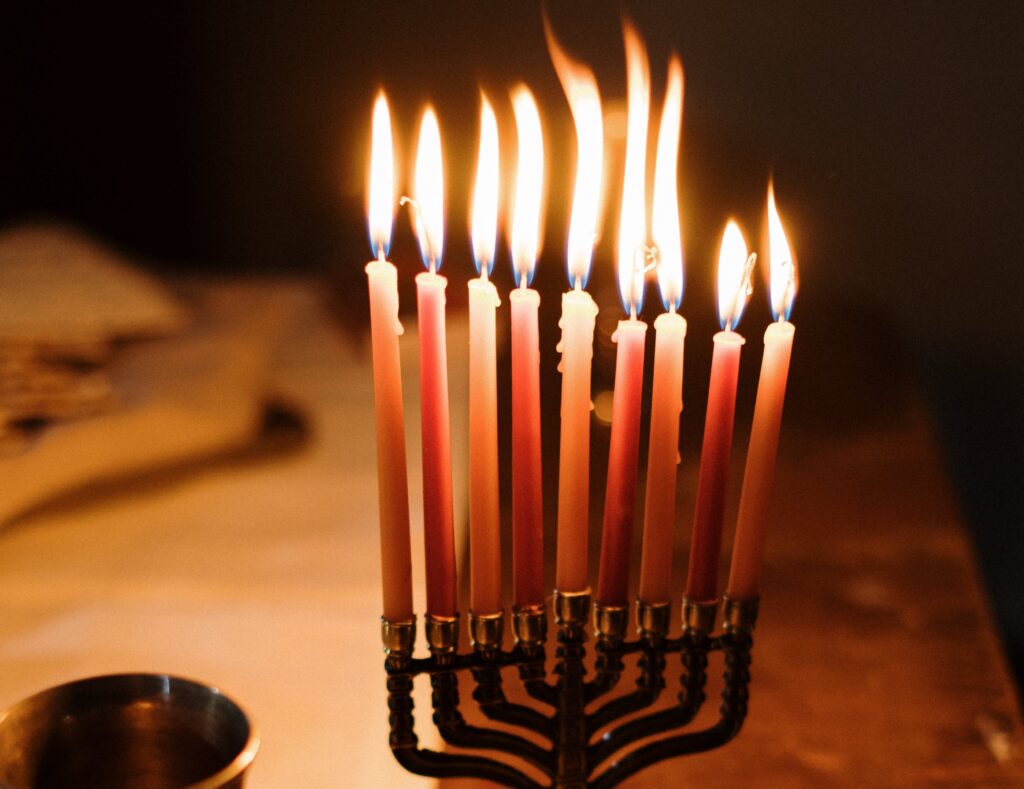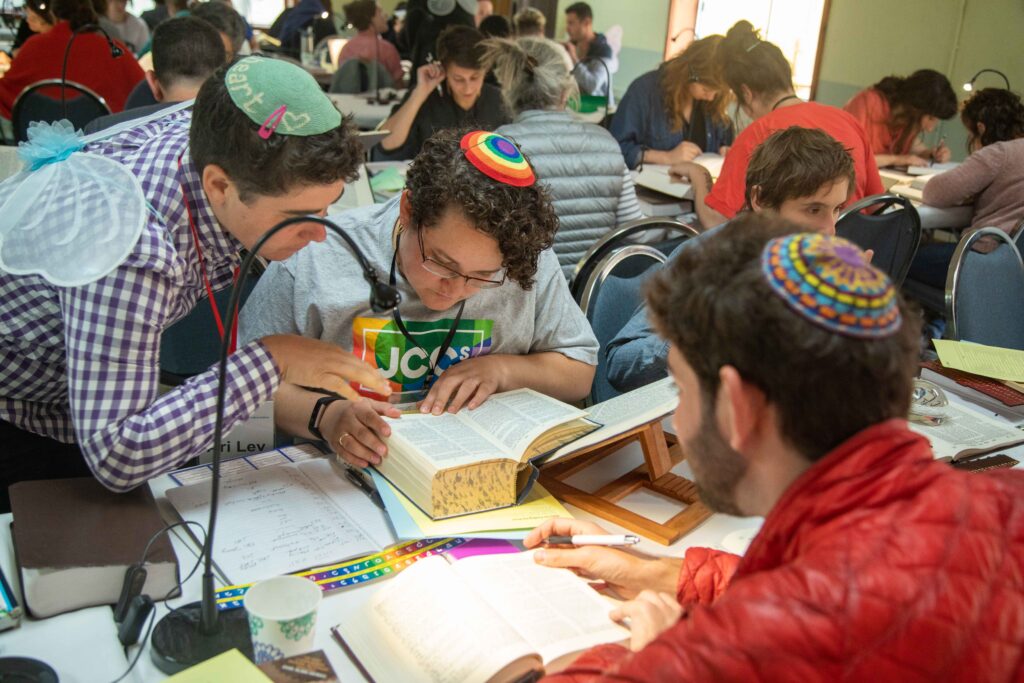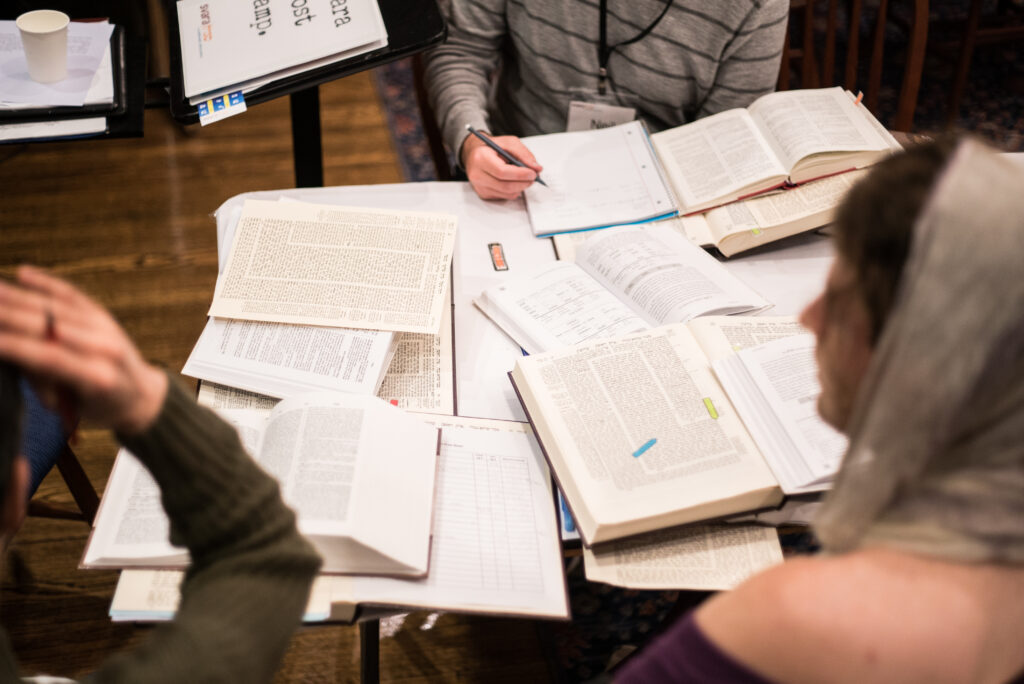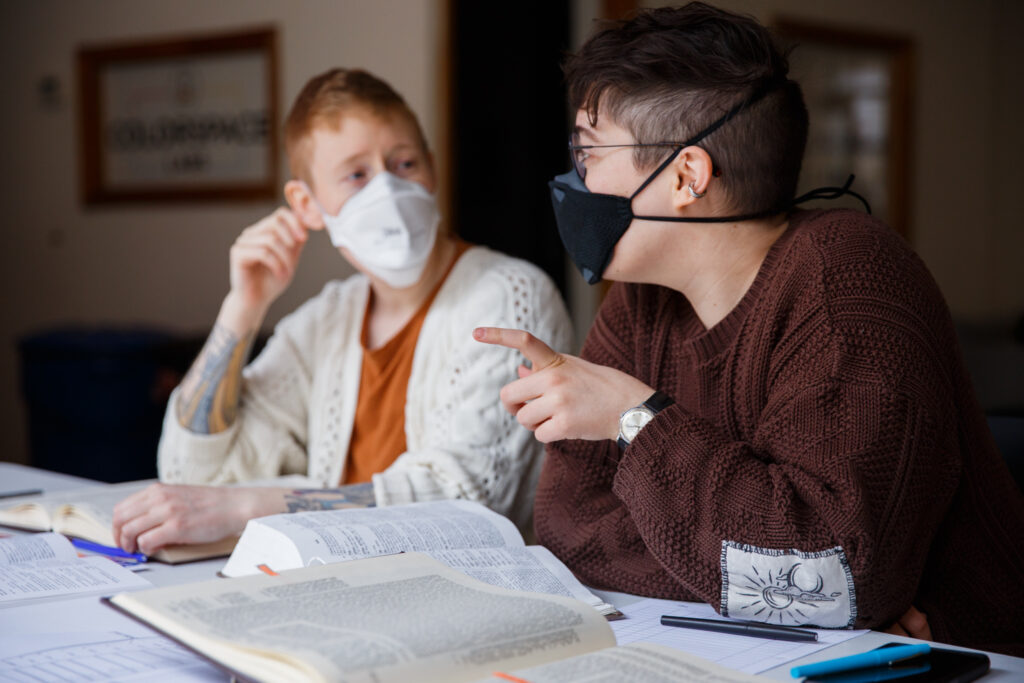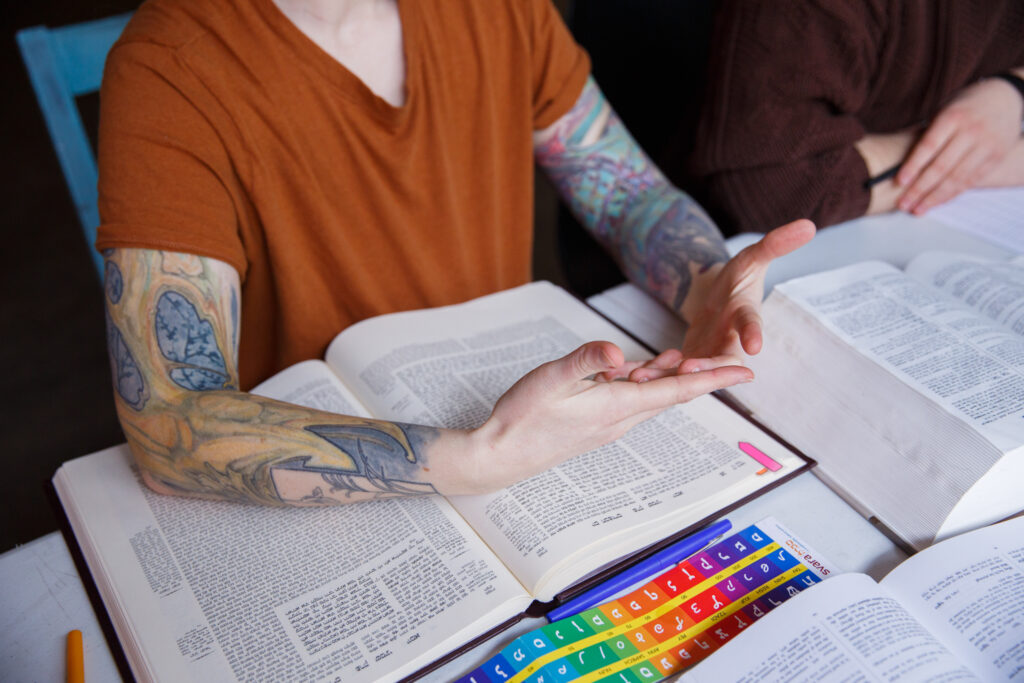Throughout Chanukah, SVARA’s Mishnah Collective has been doing a deep dive into a classic dispute on Shabbat 21B between Bet Hillel and Bet Shammai regarding how one ought to light their chanukiyah. Bet Hillel says that we increase in light each night, beginning with a single light on the first night and concluding the holiday on night eight with a full chanukiyah. Bet Shammai, by contrast, argues that we should begin Chanukah with a fully lit chanukiyah and decrease in light each night. What is the reason for Bet Hillel and what is the reason for Bet Shammai? The Gemara invites us to go down a few paths of possibility.
Perhaps, we should light according to Bet Hillel because of the principle that we only increase in holiness and do not decrease. This is why standard Jewish practice has been to light according to Bet Hillel. Perhaps we should light according to Bet Shammai on the principle that our chanukiyot should mirror the sacrificial offerings of Sukkot. This little line can often go unnoticed but it jumped out at me this year.
The Torah outlines the sacrificial bulls that were offered on Sukkot in Numbers 29:12-34. On the first day, thirteen bulls were offered. Each subsequent day, one fewer bull is offered until, on the seventh day, seven bulls are offered. Then we learn the following about the eighth day—Shemini Atzeret:
בַּיּוֹם֙ הַשְּׁמִינִ֔י עֲצֶ֖רֶת תִּהְיֶ֣ה לָכֶ֑ם כּל־מְלֶ֥אכֶת עֲבֹדָ֖ה לֹ֥א תַעֲשֽׂוּ׃
On the eighth day you shall hold a solemn gathering; you shall not work at your occupations.
וְהִקְרַבְתֶּ֨ם עֹלָ֜ה אִשֵּׁ֨ה רֵ֤יחַ נִיחֹ֙חַ֙ לַֽיהֹוָ֔ה פַּ֥ר אֶחָ֖ד אַ֣יִל אֶחָ֑ד כְּבָשִׂ֧ים בְּנֵי־שָׁנָ֛ה שִׁבְעָ֖ה תְּמִימִֽם׃
You shall present a burnt offering, an offering by fire of pleasing odor to יהוה; one bull, one ram, seven yearling lambs, without blemish; (Numbers 29:35-36
In years past, I would often hear folks interrogating Shemini Atzeret—what, exactly, is the point of this chag? It feels like such an anticlimactic moment after Hoshana Rabah and before Simchat Torah. Before this year, I would have said that Shemini Atzeret was my favorite of the fall chagim. An introvert’s paradise! You have a lovely dinner, you go to shul, you say Hallel, offer the prayer for rain and then get to go home and enjoy a nice, long nap before summoning energy for evening hakafot.
There is something so poignantly beautiful, I would have said, about our one last moment of chag closeness with the Holy One of Blessing. One bull, one ram, just a moment to transition out of the holiness of chag back to our daily lives.
On October 7th, which coincided with Shemini Atzeret, I gathered bits and pieces of the unfolding attack and massacre from what I gleaned in shul. Unaware of the full scale of what happened, I remember trying desperately to remain firmly in chag time while recognizing that we were also in an awful time, the scope of which I learned about at the close of Simchat Torah on Sunday evening.
In the months since October 7th, I keep coming back to Shemini Atzeret—what it represents and the role that this representation plays for me as I continue to mourn and grieve through this time all of the horrible, irreplaceable human cost of this war.
Shemini Atzeret represents closeness and a deep desire to prolong our goodbye with the Divine. The day feels leisurely to me. It’s our last experience for a good long while, perhaps, of the unique rhythm of chag time.
If the eighth day of Shemini Atzeret is like a quiet exit in years past, the eighth day of Chanukah is the complete opposite. In many classic Chasidic sources, it’s called Zot Chanukah—”this is Chanukah”—to illustrate the idea in Judaism that if seven represents creation, eight is perfection. The eighth day of Chanukah is the culmination of our celebration, bringing with it so much energetic possibility.
Simchat Torah serves that role for many of us certainly. Yet, Simchat Torah, like Chanukah, is a later addition, owing to the practice in many Diaspora communities to keep Chag for two days. In those communities in the Diaspora and in Israel who keep one day, the festivities of Simchat Torah occur on Shemini Atzeret.
I am finding tremendous meaning in choosing to reclaim Zot Chanukah this year, not in the typical way of a massive celebration of Chanukah’s final lights but instead akin to how I revel in Shemini Atzeret’s intimacy.
In most years, we move out of the chag season and back to ordinary time with little fanfare. Chanukah becomes our respite. There was no such transitional time this year. We moved from holy intensity to intensity whose horror, shattering, and grieving are now parts of my lived experience I know in my bones I will be living with for the rest of my life. As with all prior crashes, we each are grappling and remaking our senses of self and relationships to the world in the aftermath of a paradigm-altering event.
I’ve been asking myself this Chanukah how I want to reclaim zot Chanukah this year. Which aspects of Shemini Atzeret that I hold so dear can I bring to my own observance? It’s a bit chilly to be sitting outside, but perhaps I can sing Hallel with extra kavvannah this year, or choose to read a good book for a while even as I hasten to prepare for Shabbat. Or, perhaps, I can encounter the day a bit more leisurely than I would typically do. Finally, Zot Chanukah can serve as a holy container for reflection. Which pieces of this Chanukah do I carry forward and which pieces do I let go? This kind of inner reflection typically carries me through the quiet Shemini Atzeret afternoon as I reflect upon Rosh Hashanah, Yom Kippur, Sukkot and all of the days in-between. What from this holy energy can I carry into ordinary time, and how can I integrate it into my daily life going forward?
The eighth day of assembly, Shemini Atzeret, was not given the holiness it deserved this year. The violation of holy time is something I’m struggling to understand and integrate. What I can do is find a way to reclaim this Zot Chanukah as a small way to reset. I don’t know how this will feel or if it will even work at all. What I do know is we have another eighth day that we can use however we need to. May your Zot Chanukah be all you need it to be and may we all find ways to encounter each other with gentleness during this shattering time.

